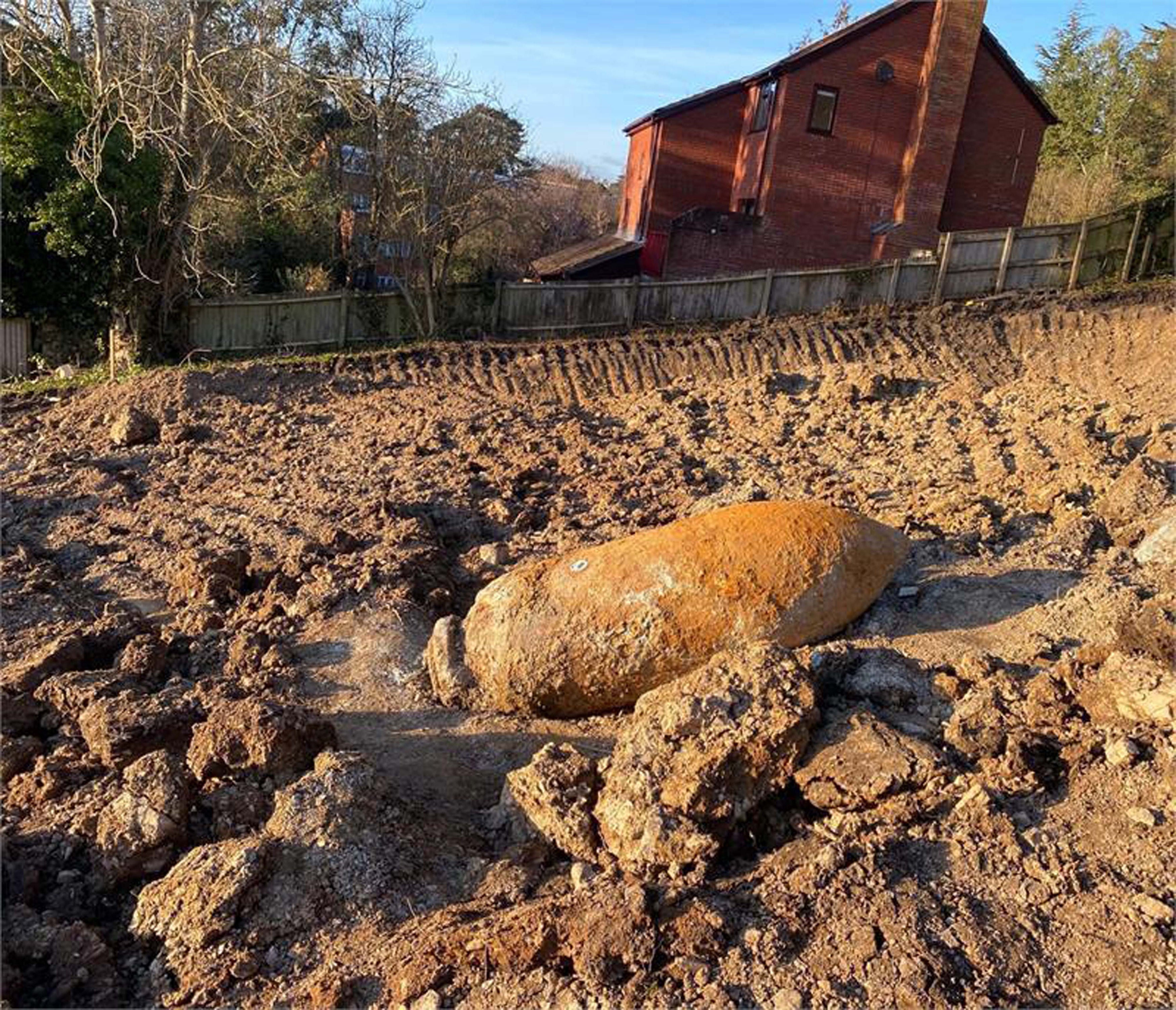Exeter bomb: Second World War explosive detonated after thousands evacuated
Huge 2.5 metre long device discovered by builders working on private land
Your support helps us to tell the story
From reproductive rights to climate change to Big Tech, The Independent is on the ground when the story is developing. Whether it's investigating the financials of Elon Musk's pro-Trump PAC or producing our latest documentary, 'The A Word', which shines a light on the American women fighting for reproductive rights, we know how important it is to parse out the facts from the messaging.
At such a critical moment in US history, we need reporters on the ground. Your donation allows us to keep sending journalists to speak to both sides of the story.
The Independent is trusted by Americans across the entire political spectrum. And unlike many other quality news outlets, we choose not to lock Americans out of our reporting and analysis with paywalls. We believe quality journalism should be available to everyone, paid for by those who can afford it.
Your support makes all the difference.Thousands of people were evacuated after a World War Two bomb was discovered in Exeter.
A loud explosion could be heard for miles when the disposal experts detonated the explosive after securing the area on Saturaday.
Hundreds of university students from 12 halls of residence and residents of a nearby care home were among those ordered to leave around 2,600 properties after the bomb was found in the city’s Glenthorne Road.
Devon and Cornwall Police were alerted after the device was discovered by workers on a building site on private land to the west of the University of Exeter campus at about 9.20am on Friday.
A 400-metre cordon was placed around the device as disposal experts from the Royal Navy spent Saturday attempting to make it safe.
Inspector Sean Roper, of Devon and Cornwall Police, suggested the measures had been put in place because of the sheer size of the bomb.
He said: "It’s approximately 2.5 metres in length by about 70cm in width.
"It’s not uncommon for this area, to find World War Two explosives, but one of this kind is uncommon so we’re taking all the precautions we need to make sure everyone is safe in the area.
"We’re fully aware that this is probably decades old but the moving of this item does pose a risk and we need to make sure we do everything we can to support the locals."
Police warned that a “loud bang” was expected when the bomb was detonated on Saturday evening, but said there was no cause for alarm as the cordon meant there were no health risks to anyone beyond its perimeter.
Speaking ahead of the detonation, a force spokesman said pets and small children should be kept indoors and people should not gather outside.
“Personnel from the Army’s Royal Logistics Corps took over from Royal Navy bomb disposal experts this morning in preparation for the controlled detonation of the device,” he said.
“Both teams have been responsible for erecting a walled mitigation structure. This afternoon, trenches have also been created to prevent ground shock.
“After the detonation, assessments will be conducted by various utility companies prior to residents returning. It is anticipated that the majority of residents will be able to return home this evening.”

However, Exeter University asked students not to return to their residences on Saturday as safety assessments needed to be conducted.
One student, Fran Henderson, 18, was told to pack at 7pm on Friday before being taken to a hotel outside of Exeter at 1am on Saturday.
The politics, philosophy and economics student told the PA news agency that she had been informed it was “most likely” that she would be able to return to her student residence at 12pm on Sunday.
“The site is about 120 metres away from our accommodation,” Ms Henderson said.
Police previously said that the majority of residents in private homes were staying with family and friends.
Devon County Council confirmed that visiting friends and family was allowed in such circumstances, despite Covid-19 restrictions.
Speaking to Devon Live, one resident – a mother with a 10-year-old son – said they were moved within minutes of the discovery.
She said: “We were told we couldn’t return today so are staying in the Premier Inn. Other people evacuated to the hotel say they have been told it will be 48 hours before we can return."
The University of Exeter, meanwhile, urged students who were not attending a timetabled teaching session, a scheduled welfare appointment or who lived there, to avoid going in until the incident was resolved to "keep campus as quiet as possible".
Exeter City Council said no evacuation centres had been set up.

Join our commenting forum
Join thought-provoking conversations, follow other Independent readers and see their replies
Comments